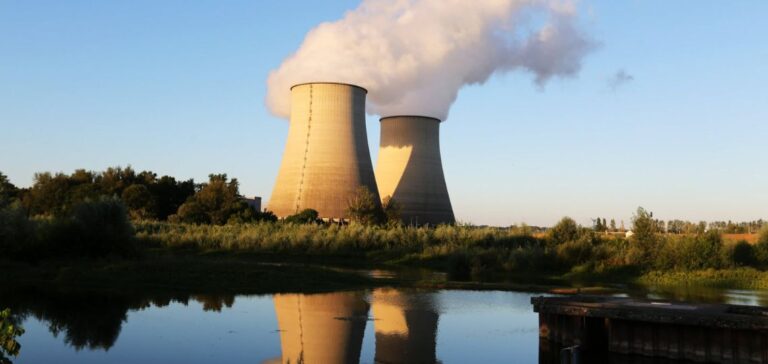Production at EDF’s nuclear power plants rose by 7.9% in the first eight months of the year compared with 2022, thanks to “optimization and control of construction sites” to resolve the problem of stress corrosion, a phenomenon that will cause an unprecedented industrial crisis in 2022.
French Nuclear Power Gains Ground with a 7.9% Increase in 2023
Since the beginning of the year, cumulative production at the end of August reached 206.1 TWh, up 15.1 TWh on the same period last year (+7.9%), the group indicated on Monday in an information message on its website.
Over the month of August, monthly nuclear production rose by 32%, from 18.1 Twh in 2022 to 23.9 Twh in 2023. Since May, EDF’s monthly output has exceeded that of 2022.
According to the Group, this improvement is due to “optimization and control of stress corrosion sites”.
Hydropower production, which has been hit hard by drought and heatwaves in 2022, also recovered: +32.4% year-on-year in August and +5.4% for cumulative production to the end of August.
Spectacular turnaround: EDF aims to generate 400 TWh of nuclear power by 2030
Discovered at the end of 2021, the corrosion phenomenon affecting emergency pipes crucial for cooling power plants had plunged the group into a serious industrial crisis during 2022, in the midst of the global energy crisis and against the backdrop of the risk of power and gas shortages last winter.
Nuclear generation fell to a 30-year low of 279 TWh. Under pressure from the government, EDF has made it a priority to turn around its nuclear production.
It plans to generate 300 to 330 TWh in 2023 and is targeting 335 to 365 TWh in 2025. The CEO of the renationalized company, Luc Rémont, has also set a target of 400 TWh in 2030.
The government has indicated that it will retain this 400 TWh target in order to “judge the operational performance of EDF’s management team”, according to comments made by Energy Transition Minister Agnès Pannier-Runacher in July.
Why does it matter?
The 7.9% increase in EDF’s nuclear output in 2023 is of great importance after the corrosion crisis of 2022. This improvement is crucial to meeting growing energy demand in France, strengthening EDF’s position as a key supplier of nuclear energy in Europe, and optimizing existing infrastructures for the future.






















